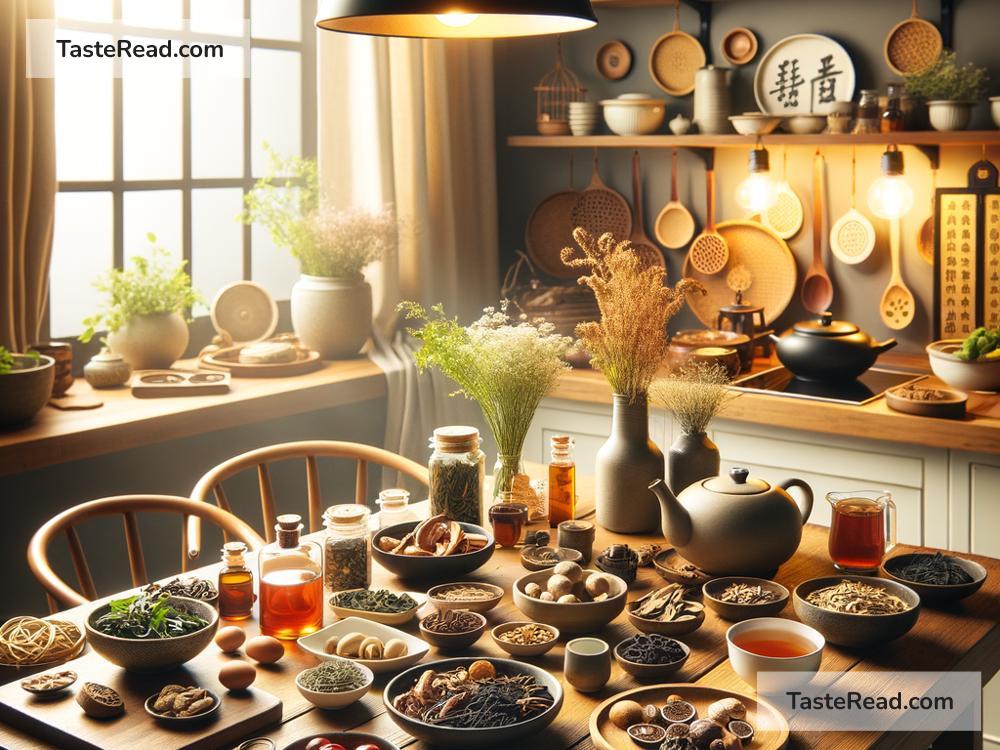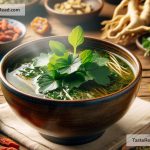The Blend of Flavor and Health: How Traditional Chinese Medicine Influences Cuisine
In the bustling kitchens and diverse dishes of China, there’s more on the menu than meets the eye. Traditional Chinese Medicine (TCM), a system of health and wellness that has evolved over thousands of years, weaves its principles not just through pharmacies or clinics, but also through the heart of Chinese cuisine. This fascinating blend of flavor and health offers a glimpse into a culinary world where every bite is imbued with significance, aimed at nourishing both the body and soul.
The Roots of TCM in Chinese Cuisine
TCM is based on the philosophy of balance and harmony within the body, achieved through the careful management of one’s qi (vital energy), and the maintenance of the yin and yang (the dual principle of feminine and masculine elements in nature) equilibrium. Food, in TCM, is much more than mere sustenance; it’s considered a key element in maintaining health and curing diseases, with each ingredient selected for its specific energy and effect on the body.
The Concept of Food Energetics
In the tapestry of TCM-influenced cuisine, foods are categorized not just by their taste or nutritional value, but by their nature and the energy they provide. Ingredients are classified as warming, cooling, or neutral, affecting the body’s balance. Warming foods, like ginger and onions, are believed to stoke the body’s internal fire, helping to improve circulation and dispel cold. Cooling foods, such as cucumber and mung beans, are thought to clear heat and detoxify the body. Neutral foods, like rice and potatoes, are considered stabilizers that bring balance.
The Harmony of Flavors
Flavor is another essential aspect, with TCM identifying five key tastes: sweet, sour, salty, bitter, and pungent (spicy). Each taste corresponds to specific organs and has its unique effects on the body. For instance, sweet foods are said to strengthen the spleen, sour foods to astringe and preserve, salty foods to soften hard masses, bitter foods to dispel heat, and pungent foods to promote circulation. A well-balanced meal in Chinese cuisine seeks to incorporate these flavors, ensuring not just a culinary delight but a healthful balance.
Seasonal Eating and Local Ingredients
TCM also places great emphasis on eating according to the seasons and using locally sourced ingredients. The belief is that aligning one’s diet with the natural world helps to maintain the internal balance of yin and yang. Spring, for example, encourages the consumption of leafy greens and sprouts to cleanse the body, while winter calls for hearty, warming foods to nourish and protect. This seasonal approach not only supports well-being but also encourages a sustainable relationship with the environment.
Culinary Creations with a Healthful Twist
Many popular Chinese dishes are crafted with these principles in mind. Congee, a simple rice porridge, acts as a comforting, neutral base to which warming ginger or cooling herbs can be added depending on the body’s needs. Herbal soups, another staple, often contain a meticulously balanced mix of roots, herbs, and meats, simmered for hours to extract their healing properties. Even the humble stir-fry, quick and bursting with varied ingredients, showcases the harmony of flavors and energetics, with vegetables and meats selected for their balancing effects.
The Global Influence
The influence of TCM on cuisine extends beyond China’s borders, inspiring chefs and food enthusiasts worldwide. The growing interest in wellness and natural foods has led to a fascination with TCM’s holistic approach to eating. Restaurants featuring TCM-inspired dishes, health blogs, and cookbooks exploring this ancient wisdom are making it accessible to a global audience, inviting everyone to taste and experience the benefits.
In Closing
The intertwining of Traditional Chinese Medicine and Chinese cuisine is a testament to a culture that sees food not only as a form of pleasure but as a means to health and harmony. This ancient approach, which emphasizes balance, seasonal eating, and the medicinal properties of food, offers a unique perspective on nutrition that the modern world is only beginning to appreciate. As we become more conscious of the importance of what we eat, the wisdom of TCM serves as a reminder that the key to health might just lie in our kitchens.


